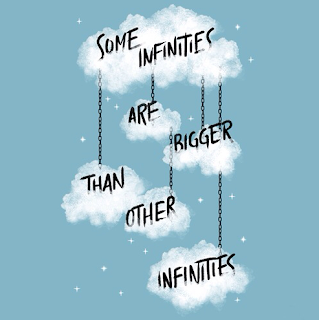In Cold Blood by Truman Capote narrates the story of the multiple murder of the Clutter family in 1959. The morning of November 15 th, 1959, the Clutter family was found dead at their home in Holcomb, Kansas. When Nancy Clutter's friends, Nancy Ewalt and Susan Kidwell, came knocking on the residence on Sunday morning since they had expected to find the family asleep, not dead. Later that day, the local Sheriff and the Sheriff from Garden City came over to prepare investigations and to test the bodies. Both Herb and Kenyon´s bodies were found in the house's basement and Bonnie and Nancy´s bodies were found in each of their rooms. After these events, three of Herb´s closest friends decided to clean the house and burn everything that had a trace of blood in it. The three friends then remembered the good times they shared with Herb and realize that everything in life can end in the blink of an eye. Most of the Clutter's relatives travel to Holcomb to attend the family´s funeral, in which more than a thousand people are present. One of the Clutter older daughters decides to get married in Holcomb three days after the tragedy. To help find the murderers of this case, a team of detectives from Kansas are hired to find the killers.
Approximately four hundred miles east from Garden City, Kansas, Perry Smith and Richard Eugene “Dick” Hickock were sharing a booth in a diner at Kansas City. Perry tells his companion about the various articles he has read in the newspaper concerning the crime they committed. The duo then start to doubt if they are completely sane or if there is something wrong with the both of them since they committed such a horrible crime. They steal some clothes, sell two TV sets illegally, and drive off to Mexico; where they cross the border without problem and start a new life the United States was never able to offer them.
“ ‘It's all the same in eternity. Just remember: If one bird carried every grain of sand, grain by grain, across the ocean, by the time he got them all on the other side, that would only be the beginning of eternity. So blow your nose.’ ” (Capote, 69)
Mrs. Clare is a widow whose husband passed away seven months and twelve days before she made this statement to Capote while he was writing In Cold Blood. Just like society has different ideas of life after death, or heaven, or hell; we all have different ideas of eternity. Mrs. Clare makes it very clear that death is not something to be played with, and that when your time comes; nothing will save you. This woman does not pity the Clutters nor did she cry over their deaths, she believes that everything is bound to happen and that death is inevitable. Mrs. Clare thinks that, when we die, eternity begins and our lives are forgotten. I disagree. We are all worth something, even if we think we are not. Perhaps our lives won't matter a million years into the future, but we will always have the present (and the past). I think that eternity is not necessarily about our existence after death, but maybe something beyond that. Somewhere beyond religion and beliefs and our universe, somewhere where forever can last for a minute, and nothing can change that; not even me (and not even you).
“That was a riddle that Perry had pondered. He felt he'd solved it, but the solution, while simple, was also somewhat hazy: ‘No. Because once a thing is set to happen, all you can do is hope it won't. Or will- depending. As long as you live, there's always something waiting, and even if it's bad, and you know it's bad, what can you do? You can't stop living.’ ” (Capote, 92)
Perry Smith is scared that both Dick and him might get caught because of the crime they committed back in Kansas. Unlike Perry, Dick doesn't think about the fact that he might end up in a cell in jail again, he thinks the plan has no flaws. Perry is realistic, he understands that the world is not just sunshine and butterflies. Dick on the other side, believes that no one can harm him and that he'll get away with everything he does, even he is a murderer himself. Perry knows that, even if they get caught, his life won't stop. Dick does not reach this conclusion, stubborn as always, Dick is convinced that actions have no consequences (good or bad). They have eachother's back though, they are good friends and they certainly know how do things right (even if they are wrong).
 | ||||||||
| This movie is about getting to know yourself and accepting how our perspectives may change along the years, but that doesn´t mean we should stop enjoying our lives. |
This book has been nothing like I expected it to be so far. The book offers so much background information for both the family's relationships with people in the town and the killers´ childhood stories that the author leaves no doubts for the readers. I expect the story to continue with the killers´ persecution and, maybe, their arrest. I actually hope that everything can go back to normal in Holcomb, Kansas. It is such a small town that when an event so extraordinary like a murder happened, the people didn't know how to react. I also hope that Dick and Perry´s reasons for murdering the Clutter family are revealed later on the book. It would be a shame for these reasons to remain unrevealed since I don't think any murder case is complete without some psychological background. So far, this book is a vivid example of how tragedy can strike in the most unusual time, and to the most unusual people.




